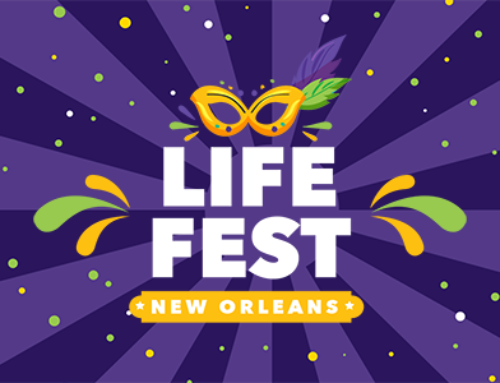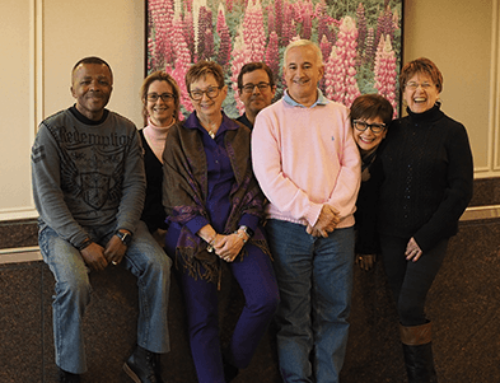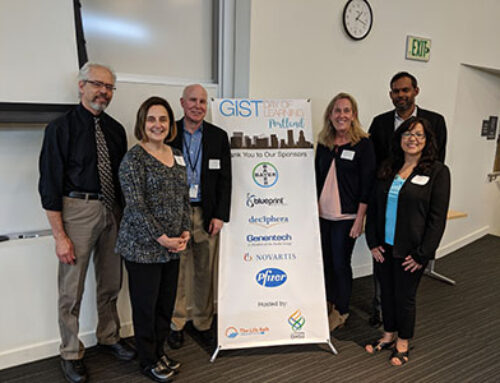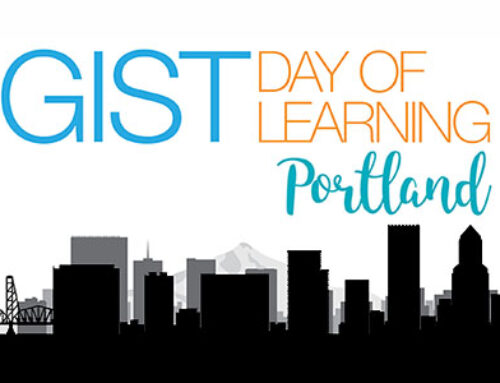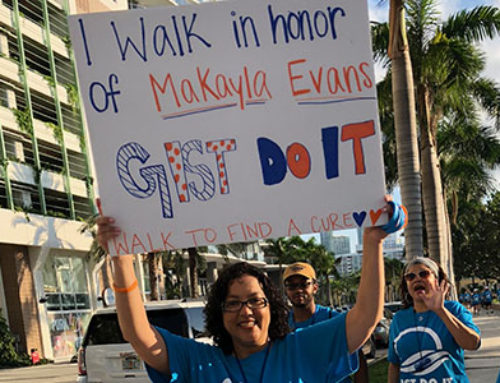I saw the pain in my wife’s eyes for me. Then I saw her mind work through how she and the boys were going to survive without me. I felt I had let them down.”
And that was just the beginning of the emotional rollercoaster for Ed Kreutz as he learned his diagnosis on July 30, 2002. Little did it matter that the sales consultant didn’t choose to have cancer. The very fact that he had cancer at all added a pinch of guilt to a large helping of anxiety.
Ed’s only warning sign was that he hadn’t been feeling well for a while. “Then one night, I developed sharp stabbing pains in my abdomen,” he says. “My wife said I looked ashen. She took me to the emergency room where I was given a CT scan. It showed a tumor the size of a grapefruit.”
Ed was admitted, and surgery to remove the tumor – along with his spleen and 15 percent of his stomach – was merely the first step. His 17-day hospital stay revealed the culprit to be GIST. To make matters worse, GISTs do not respond to conventional treatments, such as radiation or traditional chemotherapy. Just two years later, another GIST turned up, and Ed needed a new strategy in his cancer fight.
“Luckily, the FDA had just fasttracked a drug called Gleevec, an alternative form of chemotherapy that targets abnormal proteins that are fundamental to the cancer itself. In some patients, it stops the blood supply to the tumors,” Ed says. “When the tumor returned, I was put on the drug, and 60 days later the tumor receded. I was one of the lucky ones. If I had been diagnosed a year earlier, I wouldn’t be here now.” “I am still going through it,” he adds. “I must take this pill, which is essentially a dose of poison, every day. At some point the cancer will develop a resistance to it, and when that happens, there will hopefully be other options for me.”
In the meantime, Ed has found the Life Raft Group. “The name of the organization is appropriate because those of us who are taking Gleevec are on a ‘life raft’ while we wait for research to give us a more permanent alternative,” he says. “Being a part of their activities has meant a great deal to me and others, so while I try not to beat people over the head about contributing to it, I cannot downplay its importance either.”
Until an alternative to Gleevec is found, Ed is making the most of his time at home and at the office.
“Every day I wake up is a gift. Time with my family is precious. I try not to let cancer change me, but I have noticed intensity in emotions and how I view every day,” he says. “The most important thing I can convey here is to please get your annual physical. Get those nasty tests done. The harsh reality is that one in three women and one in two men will get cancer in their lifetime. This can happen to you.”

